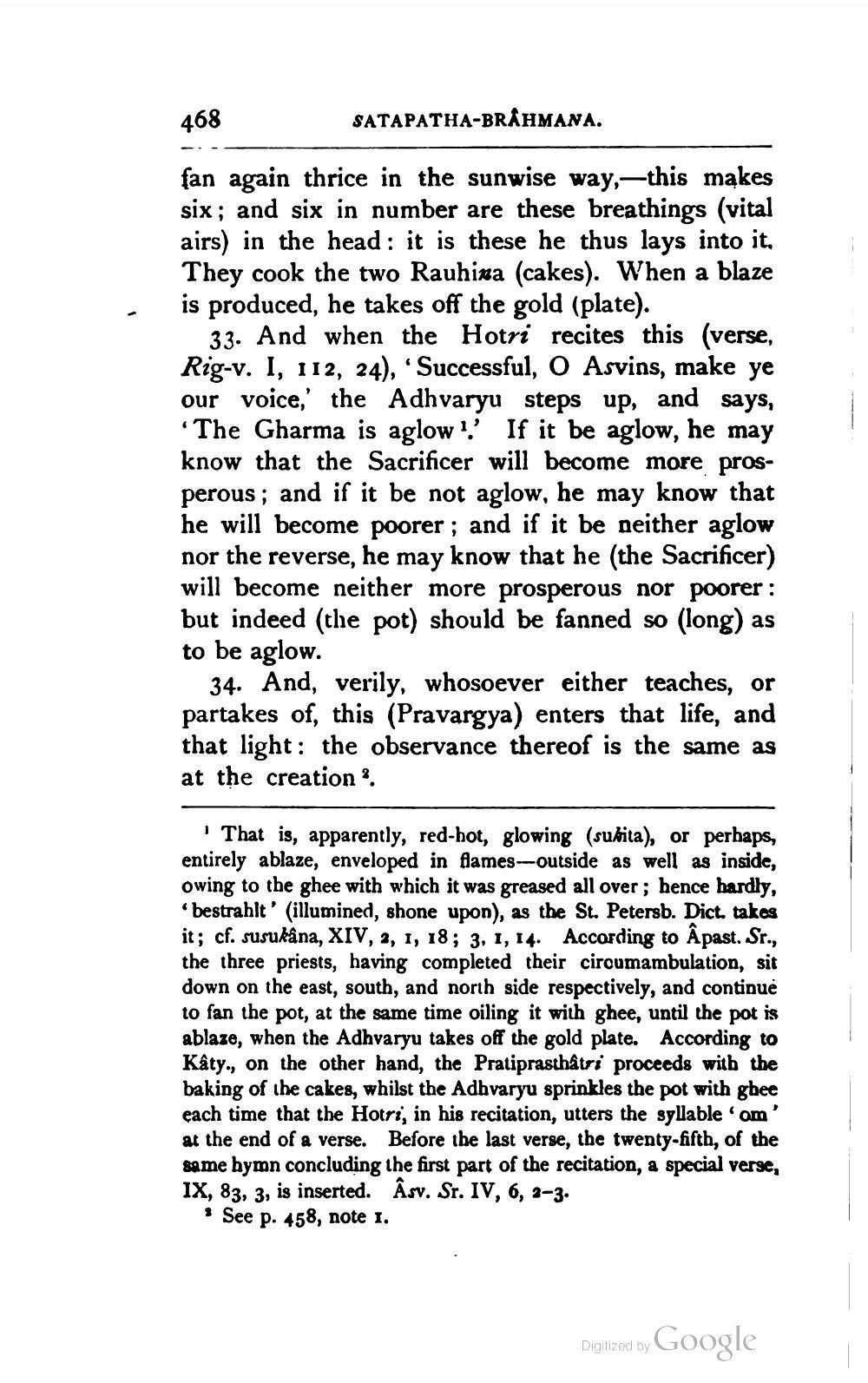________________
468
SATAPATHA-BRAHMANA.
fan again thrice in the sunwise way,—this makes six; and six in number are these breathings (vital airs) in the head : it is these he thus lays into it, They cook the two Rauhixa (cakes). When a blaze is produced, he takes off the gold (plate).
33. And when the Hotri recites this (verse, Rig-v. I, 112, 24), 'Successful, O Asvins, make ye our voice,' the Adhvaryu steps up, and says, • The Gharma is aglow?' If it be aglow, he may know that the Sacrificer will become more prosperous; and if it be not aglow, he may know that he will become poorer ; and if it be neither aglow nor the reverse, he may know that he (the Sacrificer) will become neither more prosperous nor poorer : but indeed (the pot) should be fanned so (long) as to be aglow.
34. And, verily, whosoever either teaches, or partakes of, this (Pravargya) enters that life, and that light: the observance thereof is the same as at the creation?.
That is, apparently, red-hot, glowing (sukita), or perhaps, entirely ablaze, enveloped in dames-outside as well as inside, owing to the ghee with which it was greased all over ; hence hardly, 'bestrahlt' (illumined, shone upon), as the St. Petersb. Dict. takes it: cf. susukana, XIV, 2, 1, 18; 3, 1, 14. According to Apas t. Sr., the three priests, having completed their circumambulation, sit down on the east, south, and north side respectively, and continue to fan the pot, at the same time oiling it with ghee, until the pot is ablaze, when the Adhvaryu takes off the gold plate. According to Kâty., on the other hand, the Pratiprasthåtri proceeds with the baking of the cakes, whilst the Adhvaryu sprinkles the pot with gbee each time that the Hotri, in his recitation, utters the syllable 'om' at the end of a verse. Before the last verse, the twenty-fifth, of the same hymn concluding the first part of the recitation, a special verse, IX, 83, 3, is inserted. Âsv. Sr. IV, 6, 2-3.
. See p. 458, note I.
Digitized by Google




